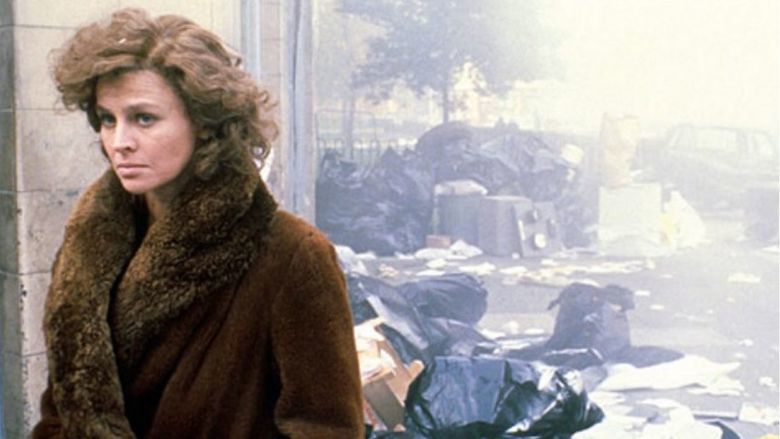Term 1
Unit 1:Nuclear Ghosts
Week 1.

SET TEXTS:
Primary text is H.G. Wells, The World Set Free, 1914
Recommended edition MIT press from 2022 but any is fine.
You can also read from a facsimile online here: https://archive.org/details/worldsetfreestor00well/page/n3/mode/2upLink opens in a new window (there is the option to download book as pdf too which means you could annotate)
Required secondary is:
Extracts from Kirk Willis, "The Origins of British Nuclear Culture, 1895–1939.Link opens in a new windowLink opens in a new window" Journal of British Studies 34.1 (1995): 59-89.
Week 2.

SET PRIMARY: Leslie Mitchell, Gay Hunter, 1935.
Almost impossible to find as a cheaper second-hand copy so use the NLS version here:
https://digital.nls.uk/lewis-grassic-gibbon-books/archive/205174255#?c=0&m=0&s=0&cv=0&xywh=-1015%2C-157%2C3805%2C3133Link opens in a new window
OR the archive.org copy that requires you to have a free account to borrow the book: https://archive.org/details/gayhunter0000jame/page/n1/mode/2up
SET SECONDARY:
Derrida, Jacques. "Spectres of MarxLink opens in a new window." (At the very least the first section if not more) New Left Review, vol. 0, no. 205, 1994, pp. 31. ProQuest, http://0-search.proquest.com.pugwash.lib.warwick.ac.uk/scholarly-journals/spectres-marx/docview/1302004378/se-2.
Further Recommended: J.W. Dunne, An Experiment with TimeLink opens in a new window [1927]
Week 3.

SET Primary:
John Wyndham,The Chrysalids,1955
SET SECONDARY:
Stümer, Jenny. "Introduction: Nuclear Ghosts, a special issueLink opens in a new window." Apocalyptica 2.1 (2023) [just until end of p.15].
Week 4.

SET PRIMARY:
Russell Hoban, Riddley Walker, 1980
REQUIRED SECONDARY:
Porter, Jeffrey. "Three Quarks for Muster Mark": Quantum Wordplay and Nuclear Discourse in Russell Hoban's" Riddley WalkerLink opens in a new window." Contemporary Literature 31.4 (1990): 448-469.
Optional extra:
Week 5.

SET PRIMARY: Wr. Troy Kennedy Martin, dir. Martin Campbell, Edge of DarknessLink opens in a new window,1985 [6-part drama, roughly 55mins an episode] Take notes on each episode / character names / nuclear power and weaponry references / British-specific aspects and anything else of interest.
SET SECONDARY: Ellen Boucher, "Anticipating Armageddon: Nuclear Risk and the Neoliberal Sensibility in Thatcher’s BritainLink opens in a new window", The American Historical Review, Volume 124, Issue 4, October 2019, pp. 1221–1245.
Optional but Recommended: Cockin, Katharine. "Re-reading Edge of Darkness: The Power of Northernness and the ‘Man of Feeling’." Heading North: The North of England in Film and Television (2017): 133-150.
RECOMMENDED further reading:
John Caughie, Edge of Darkness (BFI Classics), 2008
Unit 2:Folk Horror
Week 7.
SET PRIMARY: Peter Dickinson, The Weathermonger, 1968
SET SECONDARY: Jeffrey A. Tolbert, and Dawn Keetley, ‘Folk Horror: An IntroductionLink opens in a new window', Horror Studies,Volume 14, Issue Folk Horror, Oct 2023, p. 159 - 172. https://0-doi-org.pugwash.lib.warwick.ac.uk/10.1386/host_00067_2

Week 8.
SET PRIMARY READING:
Wr. Anthony Shaffer, dir. Robin Hardy, The Wicker Man, 1974
REQUIRED SECONDARY READING (two pieces):
Hughes, William. "‘A strange kind of evil’: Superficial paganism and false ecology in The Wicker Man". Ecogothic. Manchester, England: Manchester University Press, 2015, pp.58-68.
AND
Koven, Mikel J. "The Folklore Fallacy: A Folkloristic/Filmic Perspective on 'the Wicker MaLink opens in a new windown'." Fabula 48, no. 3 (2007): 270-80.
If ever links aren't working for you, then search for the title in the library catalogue!!

Week 9.
SET PRIMARY: Doris Lessing, Memoirs of a Survivor, 1975
SET SECONDARY:
Angelika Bammer, "Rewriting the Future: The Utopian Impulse in 1970s' FeminismLink opens in a new window" in Partial visions: feminism and utopianism in the 1970s (Routledge, 1991) [access via TalisAspire]
Want you to think about the extent to which we can consider Lessing's text a Feminist/Utopian text and what part the specificities of what came before and the idealised location/social order of the "after", play in this. Is this another "Notes Towards Folk Horror?" Where are the crossovers and differences?

Week 10.
SET PRIMARY: Lucy McKnight Hardy, Water Shall Refuse Them, 2019
REQUIRED SECONDARY IS:
Spooner, Catherine. "Meeting the Gorse Mother: Feminist Approaches to Folk Horror in Contemporary British FictionLink opens in a new window." The Routledge Companion to Folk Horror, ed Robert Edgar and Wayne Johnson. Routledge 149-159.


Further Reading
1.
Lawrence Badash,A Nuclear Winter'sTale, 2009
John Baylis and Kristan Stoddart,The British Nuclear Experience, 2014
ed. Ele Carpenter,The Nuclear Culture Sourcebook, 2016
William Chaloupka,Knowing Nukes, 1992
I.G. Clarke,Voices ProphesyingWar, 1966
Jacques Derrida, 'No Apocalypse, Not Today', 1984
Frances Ferguson, 'The Nuclear Sublime', 1984
H. Bruce Franklin,Crash Course, 2018
Lawrence Freedman,Britain and Nuclear Weapons, 1980
Michael Gardiner,Nuclear Fictions, 2024
Matthew Grant,After the Bomb, 2009
Gabrielle Hecht,Being Nuclear, 2014
Beatrice Heuser,The Bomb, 2014
Jonathan Hogg,British Nuclear Culture, 2016
Wr. Barry Hines, dir. Mick Jackson,Threads, 1985
Drew Milne and John Kinsella, 'Nuclear Theory Degree Zero', 2021
Wr. and dir. Tom McGrath,The Nuclear Family, 1982
George Orwell,Ninteen Eighty-Four, 1949
J.B. Priestley,Doomsday for Dyson, 1958
HMSO,Protect and Survive, 1980
Mordechai Roshwald,Level 7, 1959
Liam Sprod,Nuclear Futurism, 2014
Stepping StonesConservative Party policy paper, 1976
Tim Street,The Politics of Nuclear Disarmament, 2021
E.P. Thompson, 'Exterminism, the Highest Stage of Civilization', 1980
Wr. and dir. Peter Watkins,The War Game, 1965
H.G. Wells,Man at the End of his Tether, 1945
Paul Virilio,War and Cinema, 1989
2.
Peter Buse and Andrew Stott, Ghosts: deconstruction, psychoanalysis, history, 1999
Paul Darby and Niall Finneran, 'Spectral Nation: Characterizing British Haunted Landscapes through the Lens of the 1970s ‘Ghost Gazetteer’and a Folk Horror Perspective', 2022
Daniel Darvay,Haunting Modernity and the Gothic Presence in British Modernist Literature, 2016
Mark Fisher,Ghosts of MyLife,2014
Ethan Kleinberg,Haunting History: for a deconstructive approach to the past,2017.
Richard Littler,Discovering Scarfolk,2014
Esther Peeren, 'Ghosts of the Missing: Multidirectional Haunting and Self-Spectralization in Ian McEwan’sThe Child in Timeand Bret Easton Ellis’sLunar Park',2014
Adam Scovell,Folk Horror, 2017
Katy Shaw,Hauntology,2018
Grafton Tanner,The Hours Have Lost Their Clock, 2021.
